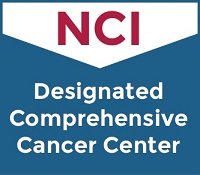Decision to Participate in a Cancer Clinical Trial a "No-Brainer" for Non-Hodgkin's Lymphoma Survivor

Arlene Kurland
Arlene R. Kurland was treated for non-Hodgkin's lymphoma at the University of Maryland Marlene and Stewart Greenebaum Comprehensive Cancer Center. She was treated by Dr. Aaron P. Rapoport, Gary Jobson Professor of Clinical Oncology and Director of the Transplant and Cellular Therapy Program at the University of Maryland School of Medicine and a specialist in blood cancers. Arlene participated in a clinical research study, and she spoke at a patient education seminar on the benefits of cancer clinical trials sponsored by the Leukemia & Lymphoma Society of Maryland.
In Arlene's Words: I'm here today to tell you about participating in cancer clinical trials. I had a very positive experience in a Phase III study that I participated in at the University of Maryland (Marlene and Stewart Greenebaum Cancer Comprehensive Center). I strongly recommend that if a clinical trial is in progress in your particular medical area, you participate. Consider your options. Twenty years ago my mother and Jackie Kennedy had no options (when diagnosed with non-Hodgkin's lymphoma.) I had the option and today I'm a survivor. For me, it was a "no brainer!"
I participated in a Phase III cancer clinical trial called The Genitope study, entering the study about six months after my chemotherapy treatment. The study required me to have a surgical procedure to harvest a small piece of an affected lymph node, which UMGCC sent to a lab to make my customized vaccine. I recuperated in three days with no problems. (The only negative part was that I asked the surgeon for liposuction while he was in my belly, but unfortunately he said it wasn't part of the study!)
I had a wonderful, caring, faithful support group -- not only at home, but here at UMGCCC. My nurses -- Fran and Mo --were wonderful. I could count on Dr. Rapoport "24/7." They are all thoughtful, understanding, encouraging, and just plain wonderful.
As a person with a medical background (I practiced for 20 years prior to my present profession), I believe very strongly in clinical trials. Without these studies, we wouldn't be as advanced in medicine as we are today. We would not have the treatments and/or cures for cancer and many other diseases that we have today.
When deciding whether or not to participate in a clinical trial, consider all the alternatives. What have you got to lose? A day or so a month at the hospital, compared to maybe no days; a few minutes with at-home treatment, compared to possibly no minutes. Some days, there's some discomfort. Chalk that one up to living!
In the Genitope study, two out of three participants received a customized vaccine. I'm no gambler, but two-out-of-three was a no-brainer. I entered the study believing, in my heart, that I was getting the customized vaccine. The preparation in order to make the vaccine was just a minor inconvenience. The rewards, for me, are awesome: the medical staff tells me I have no signs of lymphoma, and that I'm "good to go."
The UMGCC staff is still here for me. They still address my various concerns. They are still caring, compassionate, thoughtful and understanding. Would I enter a clinical study again? You bet I would. Consider all of your options and you, too, will say ... "It's a no-brainer!"
I wish you all the best of luck!


